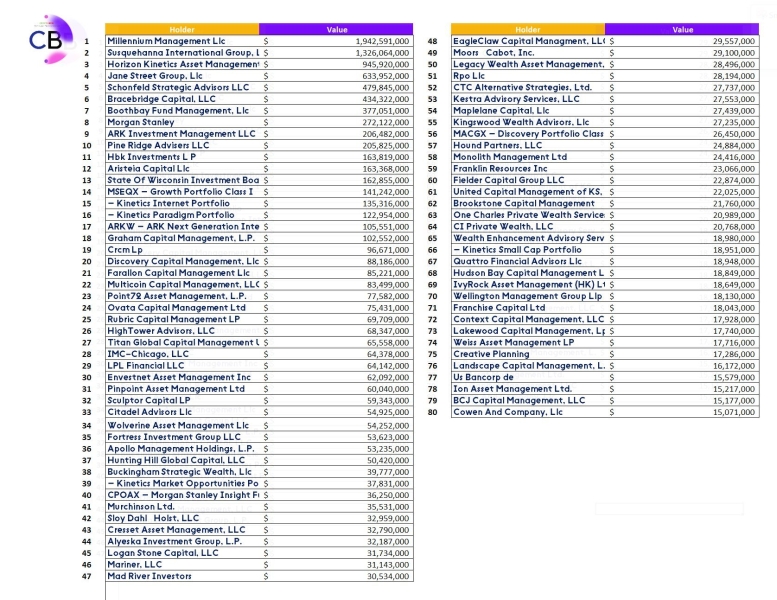Bitcoin ETFs reveal institutional dominance and possibilities of arbitrage trading shaping market dynamics, with recent outflows signaling investor caution amid economic uncertainties. By Coingape Staff 1 hour ago

Highlights
- Institutional investors, primarily hedge funds, drive the majority of net inflows into Bitcoin spot ETFs through arbitrage strategies.
- Recent outflows from ETFs signal growing investor caution amidst uncertainties surrounding economic indicators and Federal Reserve decisions.
- Despite differing views on the dominance of arbitrage, the market remains sensitive to institutional trading behavior and macroeconomic factors.
The majority of net inflows into spot Bitcoin exchange-traded funds (ETFs) are likely driven by arbitrage transactions, according to Real Vision CEO Raoul Pal. Data indicates that hedge funds are the primary holders of U.S. Bitcoin ETFs, suggesting that institutional investors, rather than retail investors, dominate this market.
In a post on X, Raoul Pal stated, “If this is correct, it shows that the vast majority of ETF flows are just arbitrageurs, and retail investors are not the key driving factor.” This insight highlights the sophisticated financial strategies at play in the cryptocurrency ETF market, particularly those involving arbitrage opportunities where traders exploit price discrepancies between different markets or instruments.
Institutional Dominance and Divergent Views
Markus Thielen, CEO of 10x Research, echoed Pal’s sentiments, noting that his firm has been emphasizing this point since March. Data from Farside Investors supports this claim, showing that the top 80 holders of spot Bitcoin ETF shares collectively manage around $10.26 billion, making up roughly two-thirds of the $15.42 billion in net inflows since the launch of these ETFs on January 11.

Notably, international hedge fund Millennium Management leads with $1.94 billion in Bitcoin ETF shares, diversified across multiple issuers including Bitwise, Grayscale, Fidelity, BlackRock, ARK, and 21Shares. However, some industry experts dispute Pal’s assertions, pointing out that, excluding the Grayscale Bitcoin Trust (GBTC), the 10 U.S. Bitcoin ETFs collectively hold $42 billion in assets under management, with additional short interest on the CME.
Best Crypto Exchanges and Apps September 2024 Must Read Top Meme Coins to Buy Now: What You Need to Know Must Read Top 10 Web3 Games To Explore In 2024; Here List Must Read
Also Read: US CPI and Core CPI Estimates By Wall Street Signals Crypto Market Recovery
Recent Outflows and Market Caution
The timing of critiques like Pal’s is significant as it coincides with notable outflows from U.S. Spot Bitcoin ETFs. On June 11, these ETFs experienced a collective outflux of $200.4 million, interrupting the robust inflows of recent weeks and signaling growing investor caution. This retreat is particularly evident in the Grayscale Bitcoin Trust (GBTC), which saw $121 million withdrawn, and the ARK 21Shares Bitcoin ETF ARKB, with $56.5 million exiting.
These movements suggest that investors are adopting a more conservative stance, potentially in response to upcoming economic indicators and Federal Reserve decisions. Crypto trader Joseph B. noted that while recent inflows might be attributed to the basis trade, this strategy constitutes less than 15% of overall ETF flows. Pal’s observation underscores that major hedge funds engaging in these ETFs primarily focus on arbitrage rather than taking directional risks based on Bitcoin’s price movements.
Also Read: Elon Musk Drops the Lawsuit on OpenAI For Breach of Mission, What’s Next?






